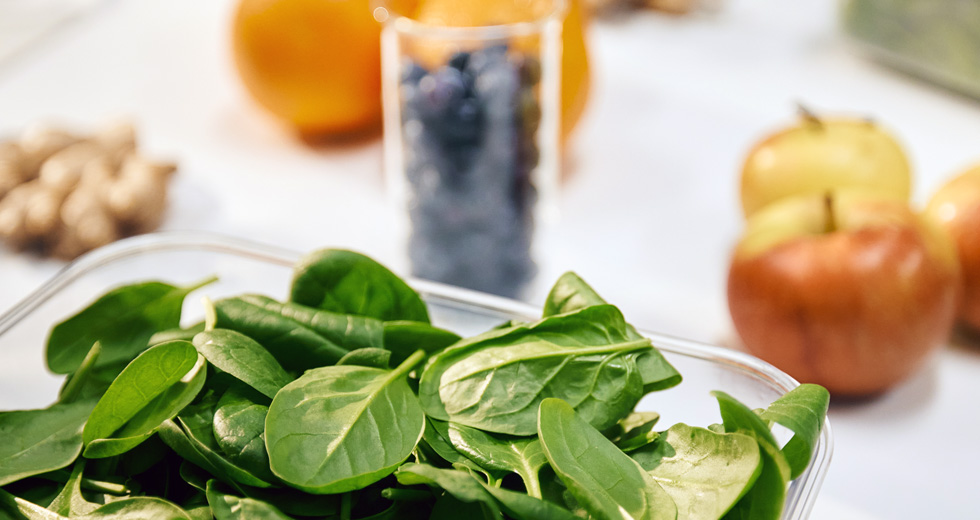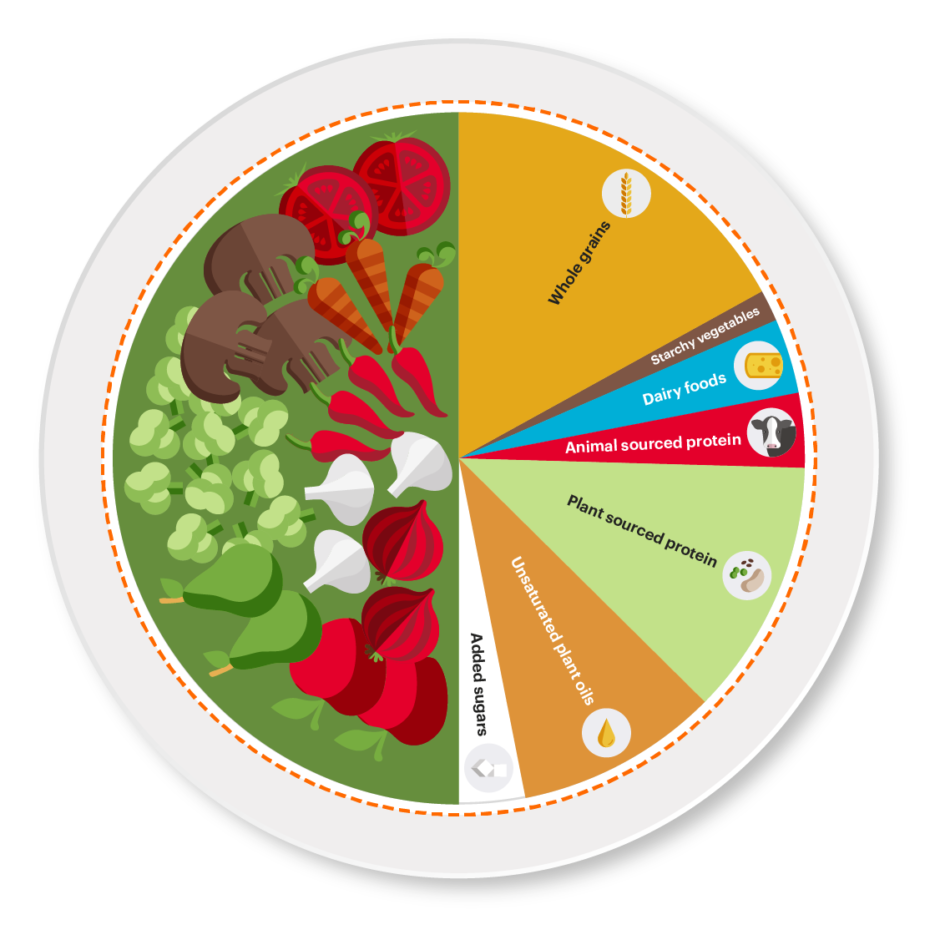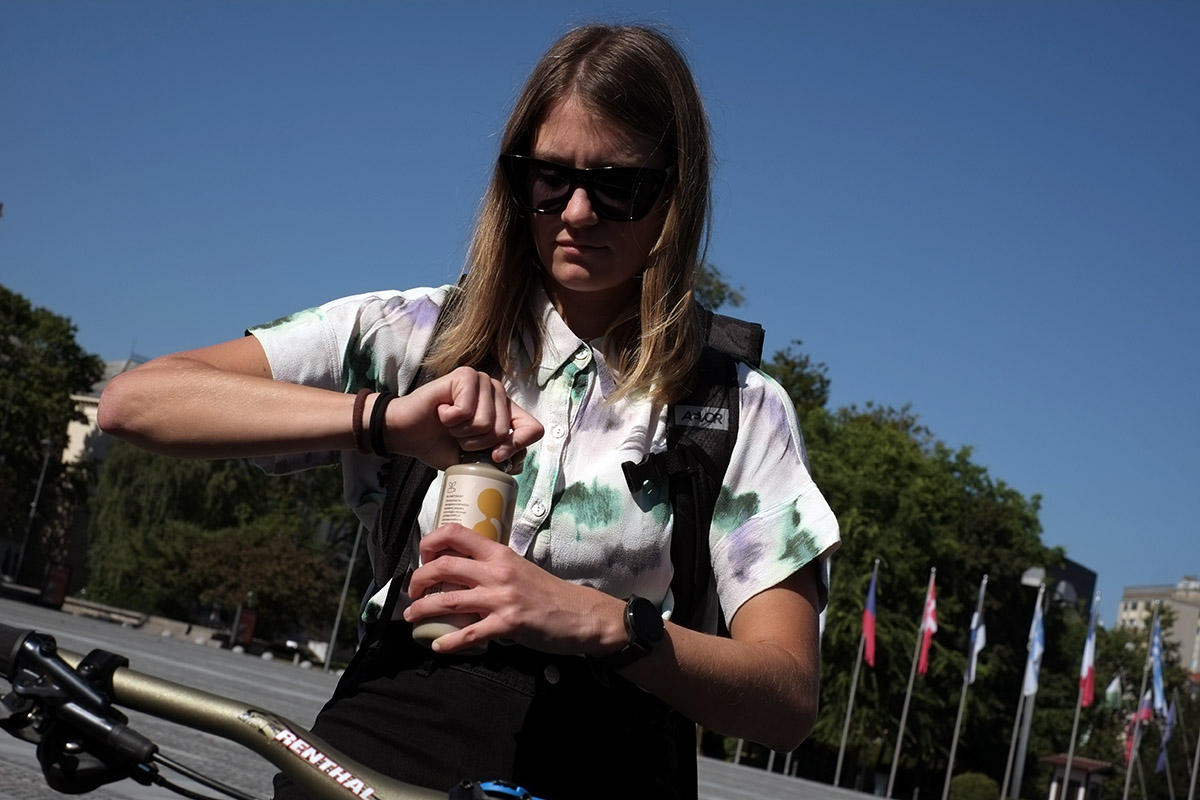Harvest Efficiency Redefined with LoginEKO Farming Software
July 24, 2024LoginEKO Farming Software redefines harvest efficiency, optimizing operations from planning to storage. Soon to be shared globally.
Read articleThe power lies in our hands—or rather, on our plates. With each meal, we wield the ability to shape a more sustainable future.

Here’s an unsettling truth: our unsustainable diets are directly mirrored in our food system’s inefficiencies.
Livestock farms cover almost 80% of farmland worldwide but only give us less than a fifth of the food we need. If we used all crops just for human consumption, we could get 70% more food, feeding 4 billion more people, explains an American study.
Simply put – we’re eating foods that put too much pressure on land, create more greenhouse gasses and consume more water, while we’re also using valuable farmland to grow crops for biofuels instead of food.
The main thing isn’t really how much we eat, but what we eat. As people get richer and the overall standard of living is growing across the globe, they eat more varied diets with more meat. Now, plates once filled with grains and hearty vegetables groan under the weight of excess—a bounty of calories, protein, and animal-based delicacies.
This puts pressure on our land, and climate.
Abundance comes at a cost.
Meat production takes up huge amounts of land. Our World in Data numbers show that if we add up all the land used for grazing around the world and the land used to grow feed crops, livestock takes up 80% of agricultural land. So how much is left to be used for growing crops for humans?
In addition, a study by National Geographic found that only 55% of the world’s crop calories nurture humanity directly, while 36% is used as feed for livestock.
When it comes to the carbon footprint of foods, raising livestock for meat and animal products creates ten times more greenhouse gas emissions than plant-based foods. Something similar could be said for water.
It's a tale of inefficiency. The process from the farm to your plate uses up a lot of resources and makes climate change worse.
And if this wasn’t enough, research by Transport & Environment shows that the land that is currently being used to grow crops for biofuels in Europe could feed 120 million people or, if left for nature, could absorb twice as much CO2 as is supposedly saved by using biofuels for cars.
To increase the calories and protein we get from crops, we can simply cut out the middleman - farm animals. And we need to stop using crops for biofuels.
This shouldn’t be too hard.
Think about this: changing what we eat can help save lots of land from being used for farming.
If everyone in the world ate less or no meat , we could free up land equal to twice the size of India. That’s more land than has been turned into farms in the last fifty years, explains Our World in Data.
The same study shows that adapting our diets can also slash greenhouse gas emissions by 168 billion tons of CO2 equivalent—more than three times the total global emissions in 2009. It’s a big step toward a better future where we can feed more people without further harming our planet.
Any change is difficult, especially when it touches our daily habits, like what we’re having for lunch.
Some people might make a decision based on the World Resources Institute’s Protein Scorecard – a tool that ranks foods based on their environmental impact.
Others might prefer a couple of more concrete sets of recommendations also backed by science. The best news? These diets are not only environmentally friendly, but also healthy for people in general.
The EAT-Lancet report suggests replacement of animal-source foods with plant-based alternatives. This would reduce levels of underweight and overweight, have a beneficial impact on public health, reduce pressure on the environment, and serve human wellbeing. Such energy-balanced dietary patterns are flexitarian, pescatarian, vegetarian, and vegan diets. To arrive at these conclusions EAT gathered 37 of the planet’s foremost experts who proposed scientific targets for what constitutes both a healthy diet and a sustainable food system. To evaluate its association with the risk of major health outcomes, the scientists used data from 46 069 participants.

The World Resources Institute (WRI) advises individuals in the global north to limit their meat consumption as part of a broader strategy to feed a growing population sustainably.
Project Drawdown highlights the benefits of a plant-rich diet and emphasizes the importance of considering the environmental impact of food choices, noting that reducing red meat consumption is more effective than focusing solely on local food sourcing.
You might say that this is all good and sounds nice. But in today’s busy lifestyles, switching to a different diet overnight might be tedious. Learning to cook new plant-based dishes rather than frying a steak, or understanding the proteins you get from a chickpea burger in comparison to a beef burger all takes time. And time is also one of those resources that we’re short on in modern societies.
At LoginEKO we understood this challenge and so our food development team set on the path of creating a healthy and environmentally friendly product, that corresponds to busy lifestyles.

We made it our mission to prioritize convenience in food without sacrificing health. And so our Njamito, a meal in a bottle, was crafted to provide convenience without compromising on nutrition. It is organic, features a clean label, and utilizes high-pressure processing to preserve its nutrients.
In the big picture of fighting climate change, what we eat plays a huge role. It’s not just about our own health but also about the planet’s well-being for the future. As the world gets more populated and resources get stretched, it’s important to rethink what we eat. Our current way of eating, with lots of meat and inefficient use of land, is making things worse for the Earth, and therefore worse for future generations.
By making changes to our diets and switching to plant-based meals, we can help make sure that our grandchildren have a possibility to eat healthy food.
LoginEKO Farming Software redefines harvest efficiency, optimizing operations from planning to storage. Soon to be shared globally.
Read articleWhat if we told you that sunflower seeds you buy were sprayed with 9 active ingredients in pesticides? What if we told you this wouldn't have been necessary?
Read articleLoginEKO's moves into gluten-free farming tapping into rising consumer trends for a healthier market niche.
Read article